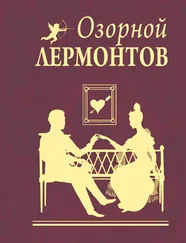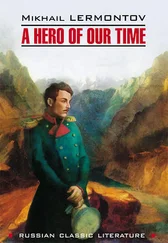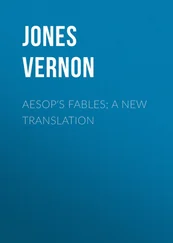Indeed, as Vladimir Nabokov describes in a piece called “The Lermontov Mirage” ( The Russian Review, November 1941), Pechorin and Onegin may be cut from the same cloth—but fashions have changed in Lermontov’s hands:
In Russian schools, at least in my day, a favorite theme for compositions was “Onegin and Pechorin.” The parallel is obvious, but quite superficial. Pushkin’s Onegin stretches himself throughout the book and yawns. Lermontov’s Pechorin does nothing of the sort—he laughs and bites. With his immense store of tenderness, kindness, and heroism behind his cynical and arrogant appearance, he is a deeper personality than the cold lean fop so delightfully depicted by Pushkin.
Indeed, A Hero of Our Time is a much greater step toward the Russian novel as we know it largely because it is an effort in prose, which adjusts narrative perspectives from poetical practices. In broad terms, traditional prose lends more dimension to a character than traditional poetry. John Stuart Mill wrote that “all poetry is of the nature of soliloquy,” that when we read poetry we are somehow overhearing the poet, who is addressing himself. Epic poems and novels in verse belong more to the category of sung stories, where the narration is delivered from the poet or bard to his audience. Novels, on the other hand, expand the notions of narration by exploring perspectives. The poem requires you to suspend disbelief—you must agree to its terms. A novel is an act of persuasion of the reader—it seduces a reader into believing it. As the Russian literary canon goes, you could say Onegin is the ready, Pechorin is the aim, and the rest are the fire.
Much has been made of the narrative structure of this novel—which has three narrators in total. The story emerges over the course of various episodes that aren’t chronologically ordered. In fact, originally the novel wasn’t written as one singular work. Lermontov published most of these various episodes separately in journals such as “Notes of the Fatherland” in 1839 and early 1840. He put it all together for publication in 1841. As he did so, one can only assume that he had the liberty to rearrange the text as he saw fit, to sew it into a chronological narrative. But Lermontov chose to leave it in its prismatic, nonlinear, patchwork form. It is a portrait of a man, not a simple tale per se. Most nineteenth-century novelists in the European and later the Russian tradition gave us their characters chronologically intact, showing us their development over the course of time. This is not the case in A Hero of Our Time. If they were delivered in sequential order, the stories would read, “Taman,” “Princess Mary,” “Bela,” “The Fatalist,” “Maxim Maximych,” and, finally, the Foreword to Pechorin’s diary. In fact, if you’re looking for the ending, it appears as a mere comment on page 55, at the beginning of the Foreword to Pechorin’s Journal. But that’s irrelevant—you can’t ruin the ending of this book. The book is a portrait, told as a page-turning adventure story, a psychological look at a young man who exemplified the frustrating quandary of his type. Pechorin is a literary prototype of the “superfluous man” of Russian literature; he is another version of the Byronic antihero; and he is an early model of what would later become a nihilist.
A Hero of Our Time gives us Pechorin delivered from a few different angles, but there is nothing static about this depiction. The hero himself doesn’t evolve exactly, but during the progress of the novel Lermontov brings the reader ever closer to its hero. The first narrator listens to Maxim Maximych, a staff captain posted alongside Pechorin, who describes at length his experiences with our hero. Then this narrator, together with Maxim Maximych, encounters Pechorin himself. And finally, we are given Pechorin’s journal—an episode in a dark corner of Russia near the Sea of Azov and an episode that occurs in a pocket of high society in the Russian spa town of Pyatigorsk—all from the horse’s mouth. Lermontov doesn’t sacrifice any suspense with this structure but rather gives us his hero in ever-closer increments and builds delightful anticipation in so doing.
As C. J. G. Turner writes, “The absence of the author, in the sense of a guiding point of view, is a fundamental—and distinctly modern—feature of A Hero of Our Time. Instead, the values of the text are nicely balanced, leaving the reader free to be primarily repelled by the immorality of Pechorin, or fascinated by his personality…” There are two inroads for the reader into Pechorin’s character—the first is this narrative movement, which becomes increasingly intimate, culminating in Pechorin’s diary. The second is through the perceptions of the characters surrounding Pechorin. Each begins with admiration for him and eventually feels betrayed. Maxim Maximych describes him as “a wonderful fellow, I dare say,” only to feel snubbed by him afterward. Grushnitsky is his friend, and later his adversary. Princess Mary falls in love with him, and sheds many tears as time goes on. Meanwhile, his journals show a sense of poetry, evidence of higher education, and a love of nature. He is self-reflective and sometimes contrite. In a review in 1840, Belinsky wrote that, “In his very vices, a certain greatness shines through, like lightning through black storm-clouds, and he is beautiful and full of poetry, even at those moments when our human feeling is roused against him…” [4] Belinsky, V. G., and M. Yurievich Lermontov. Pro et Contra (St. Petersburg: Izdatel’stvo Russkogo Khristianskogo Gumanitrnogo Instituta, 2002), p. 75.
A simple reading has the reader looking for redemption in Pechorin but experiencing a cycle of hopes and disappointments along the way. Some adore his roguishness and derring-do. Others find him repellent and exhausting.
In the preface to Pechorin’s diaries, which is written by the book’s first narrator, a nameless travel writer, we are given the contradiction of the work: “Perhaps several readers will want to know my opinion of Pechorin’s character? My reply is the title of this book. ‘What vicious irony!’ they will say. I don’t know.” A lot has been written about the ironic content of A Hero of Our Time. Pechorin’s remarks are often ironic and indeed sarcastic. The title might be both of these. The reader is constantly invited to reject a literal interpretation of the text. But the beauty of this fiction, and all fiction, is that literal and ironic readings can coexist. Things seem to be one thing and turn out to be another—a novel is a long and nuanced answer to a question. As Roland Barthes wrote, “the essence of writing is to prevent any reply to the question—who is speaking?” [5] Barthes, Roland. S/Z, trans. Richard Miller (London: Jonathan Cape, 1975).
And in the author’s preface, which was added to the second edition of the book, Lermontov does warn against simplemindedness when considering his book with a swipe at Russian readers: “Our audience is still so young and simple-hearted, it wouldn’t recognize a fable if there weren’t a moral at the end of the story. It doesn’t anticipate jokes, it doesn’t have a feel for irony; it is simply badly educated. It doesn’t yet know that overt abuse has neither a place in proper society, nor in a proper book; that the contemporary intellect has devised sharper weapons, almost invisible, but nonetheless deathly, which, under the clothing of flattery, deliver an irresistible and decisive blow.”
What is abundantly clear is that, irony or no irony, the tsar wasn’t pleased with either the hero or the “hero.” When A Hero of Our Time was published, the tsar famously disparaged the work in a letter to his wife, dated June 1840:
Читать дальше
Конец ознакомительного отрывка
Купить книгу
![Михаил Лермонтов A Hero of Our Time [New Translation] обложка книги](/books/27671/mihail-lermontov-a-hero-of-our-time-new-translati-cover.webp)










